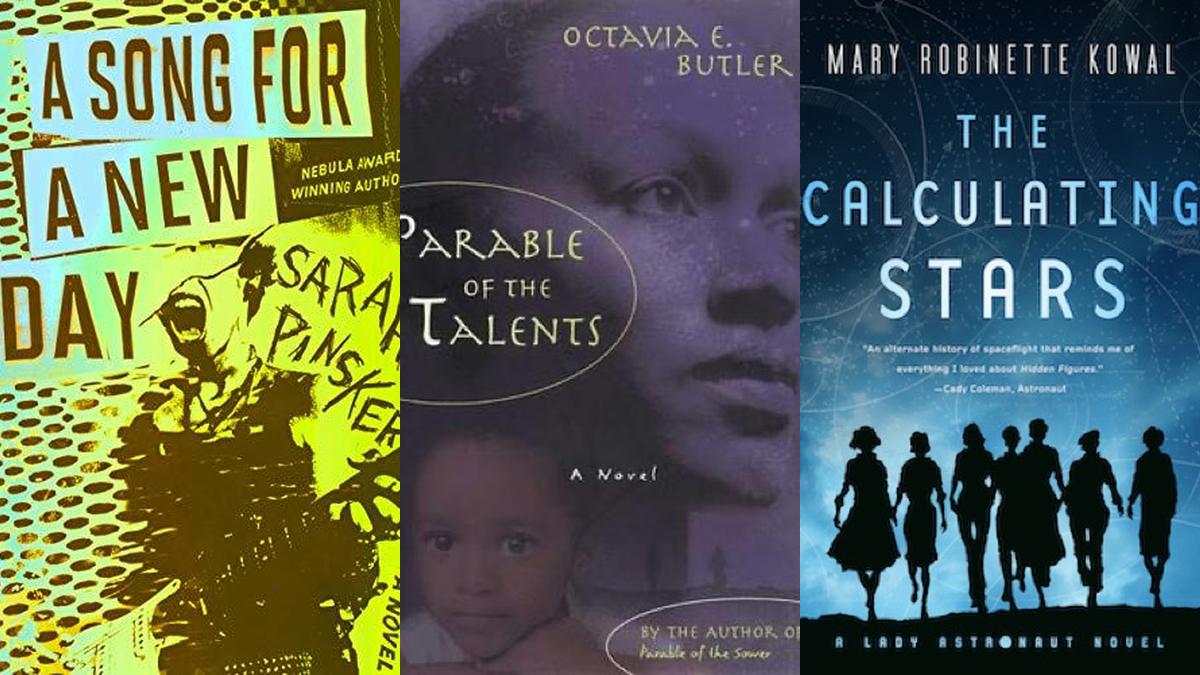
The Nebula Award! It’s like a Hugo Award, but slightly less prestigious. Don’t let that fool you into thinking that a Nebula Award winning novel is only “second best.” Think of the Nebula as Hugo’s hipster cousin. Like a collection of obscure vinyl, you might not of heard of every one of these titles hand picked for the award, but sometimes sweetest literary pools trickle off from the mainstream. These 10 novels are some of the finest sci-fi works ever penned, dating back awards’ beginnings in the latter half of the 20th century. Here they are, 10 Nebula Award winning sci-fi novels you need to read – way cooler than whatever conventional sci-fi books that Hugo is into.
The Left Hand of Darkness

An all time genre great, Ursula K. Le Guin’s The Left Hand of Darkness is one of the most decorated works of sci-fi ever penned. The novel follows Genly Ai – an ambassador to the alien world of Gethen. The people of Gethen are an offshoot of humanity that evolved into an “ambisexual” species, they only take on sexual characteristics during a brief monthly mating period called “kemmer.” As a result, traditional human gender roles are entirely alien to them – and their society is completely different from the rest of the human-conquered universe. After Genly Ai’s cultural misunderstandings cause him to become a social exile, he and a Gethenian politician are forced to cross an icy wasteland in order to seek asylum. Part political thriller, part wilderness survival epic, part treatise on gender, The Left Hand of Darkness was entirely ahead of its time – perfect Nebula Award material.
Network Effect
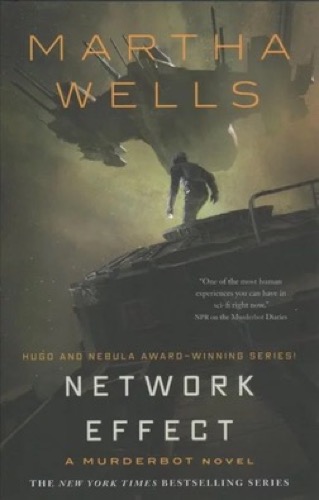
The fourth installment of Martha Wells’ The Murderbot Diaries, Network Effect is the story of a soap-opera binging security android and the humans that it is growing to (sort of) love. While accompanying an interstellar research team dispatched to a faraway world, Murderbot is forced to fend off an assault from a transport vessel and the hostile grey-skinned humanoids inside. But what are these almost-human beings? Alien shapeshifters that almost got our physiology almost right? Extraterrestrial parasites wearing humans as skin-puppets? Or something even more otherworldly and bizarre? Murderbot doesn’t need to know all the particulars to do as name suggests and take them out, and its human friends are certainly thankful for that.
A Song For A New Day

A Song For A New Day by Sarah Pinsker is dystopian sci-fi that needs to be turned into a musical STAT. The plot follows Luce Cannon, a singer whose career was cut short by a totalitarian regime. In response to terror attacks and disease epidemics, the powers that be have made concerts illegal – much to the chagrin of music fans everywhere. Music still exists in pockets – guerrilla concerts that are attended by few and outlawed with extreme prejudice. Meanwhile, a virtual reality nine-to-five worker may have discovered a way to get music heard – by connecting artists and fans through the digital world. It’s essentially a sci-fi novel detailing the rise of the Zoom concert, but so, so, so much better than that.
The Calculating Stars
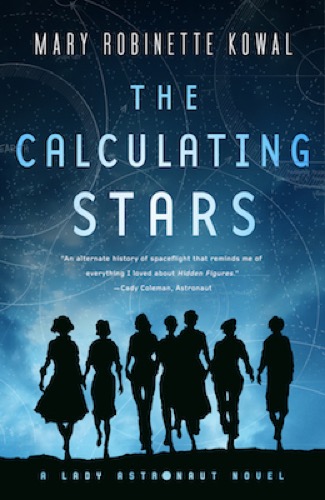
The Calculating Stars by Mary Robinette Kowal is an alternate history of the United States’ space program, which was forever changed after a meteorite wiped out a swath of the Eastern Seaboard. The surviving members of the American government have decided to greenlight an effort toward space colonization, but all of the astronauts they’ve chosen for the task are male. Led by pilot and mathematician Elma York, a group of humanity’s best minds have come together to challenge the status quo and set women up for scientific success. A feminist reimagining of the early years of spaceflight, The Calculating Stars shines a light on women whose contributions to science have been reduced to a footnote in the history books. This time, they fill every page.
Annihilation

An environmental cosmic horror novel, Jeff VanderMeer’s Annihilation is set in an undisclosed stretch of wilderness that has been affected by an extraterrestrial anomaly. Dubbed “Area X” by the research organization tasked with containing it, this environmental anomaly is slowly spreading, subtly mutating everything that crosses its shimmering border. Anyone who enters the anomaly comes back forever changed, if at all. The plot follows a group of four women who are tasked with trekking into Area X, and uncovering the mysteries within. Instead of answers, it’s only horror that they find. Never before has the pristine stillness of the natural world seemed so… sinister. While this novel poses more eerie questions than solutions, the trilogy’s sequels paint the full, awful picture of eldritch truth.
Ancillary Justice
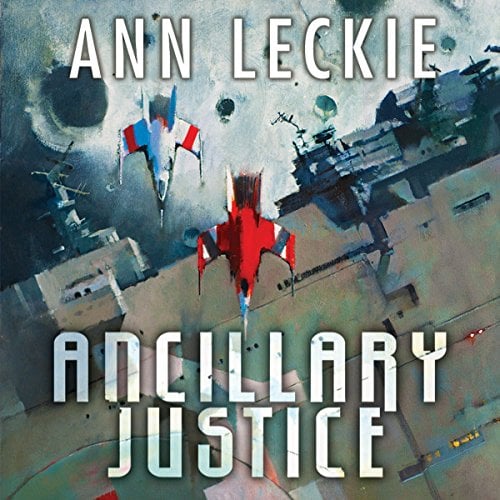
Ann Leckie’s Ancillary Justice is set in a faraway corner of the universe that is ruled by the Radchaai Empire – a star-spanning social structure defended by spaceship fleets piloted by artificial intelligence. When not controlling vast armadas, this synthetic minds pilot “ancillaries” – artificial human bodies meant to serve as infantry. After waking up in the wreckage of a former fleet, an AI named Breq finds herself trapped in the body of a single ancillary, with no idea how she got there. Confused, furious, and thirsty for revenge, Breq intends to bang on the Empire’s door for answers. If the powers that be don’t open up, she’ll just have to bash that door down.
The Windup Girl

The Windup Girl by Paolo Bacigalupi is set in a near future where fossil fuels are a thing of the past. I hate to burst your “utopia” bubble, but capitalism has found a new way to destroy the planet. The world is ruled by megacorporations known as “calorie companies” – bioengineering conglomerates that use food as a source of fuel. By genetically engineering crops and designing plagues to weed out the competition, the calorie companies are able to sell seeds to the hungry world as exorbitantly high prices. Thailand is one of the last few countries on Earth safe from the corporations’ influence, but a calorie company agent named Anderson Lake is sent to excavate a corporate foothold from within the nation’s borders. After meeting a genetically engineered human named Emiko who has gone rogue from her handlers, Anderson soon discovers that his job won’t be as easy as he thought.
Parable of The Talents

The sequel to Parable of The Sower, Octavia Butler’s Parable of The Talents continues the story of Lauren Oya Olamina – the creator of the new religion known as Earthseed. In response to a societal collapse brought on by climate catastrophe and wealth inequality, Lauren shaped a belief system for a chaotic world, whose central tenant is “God is change.” After creating a community of adherents, Lauren finds that her hard-won peace is threatened by the arrival of a Christian fundamentalist sect led by a powerful demagogue. With an eerie similarity to a real world brand of American ultranationalism, the nationalists of Parable adopt the slogan “Make America Great Again” and seek to eliminate all non-Christians – including the Earthseed community. Lauren dreams of the day humanity will leave the Earth and travel to the stars. In order for her to survive, that day may have to come sooner rather than later.
Neuromancer
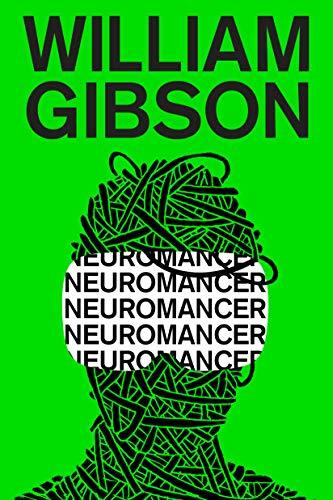
The quintessential cyberpunk novel, William Gibson’s Necromancer launched the sci-fi sub-genre into pop culture consciousness. Set in the sprawling metropolis of Night City, the novel follows a washed up hacker named Case, who is hired to pull off a digital heist by shadowy employer. Accompanied by a knife-fingered “razorgirl” named Molly Millions, Case dives into the even seedier digital underbelly of an already seedy city. As he gets deeper into the job, he begins suspect that he’s being haunted by a ghost in the machine, a synthetic intelligence that is secretly pulling the strings. Cerebral and surprisingly emotional, Neuromancer is the story of a man navigating an increasingly isolating world, where technology divides human minds more than it brings them together.
2312
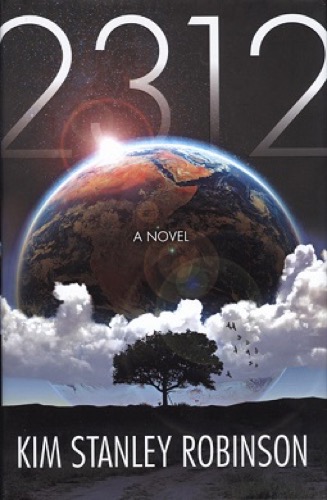
2312 by Kim Stanley Robinson is a hard sci-fi novel set in a colonized Solar System, where humans have spread from Asteroid Belt to Mercury. As it turns out, settling on the boiling hot rock right next to the Sun wasn’t such a good idea. A technological attack causes the mobile city of Terminator to stop moving, and metropolis and its inhabitants are burned to a crisp as Mercury rotates towards the star. How was such a complex technological attack possible? That’s exactly what Martian police detective Jean Genette wants to figure out. The murder weapon? All signs point to a new built quantum computer whose awesome processing power was aimed toward nefarious ends. A sweeping sci-fi epic based in sound scientific principles, 2312 is perhaps the most intellectually satisfying read on this list. Even holding this big book in your hands makes you feel smart! Imagine carrying it around at a party and telling people how much you loved the complicated physics and computing conundrums posed within, that’ll make you a hit for sure.
Have a tip we should know? [email protected]







